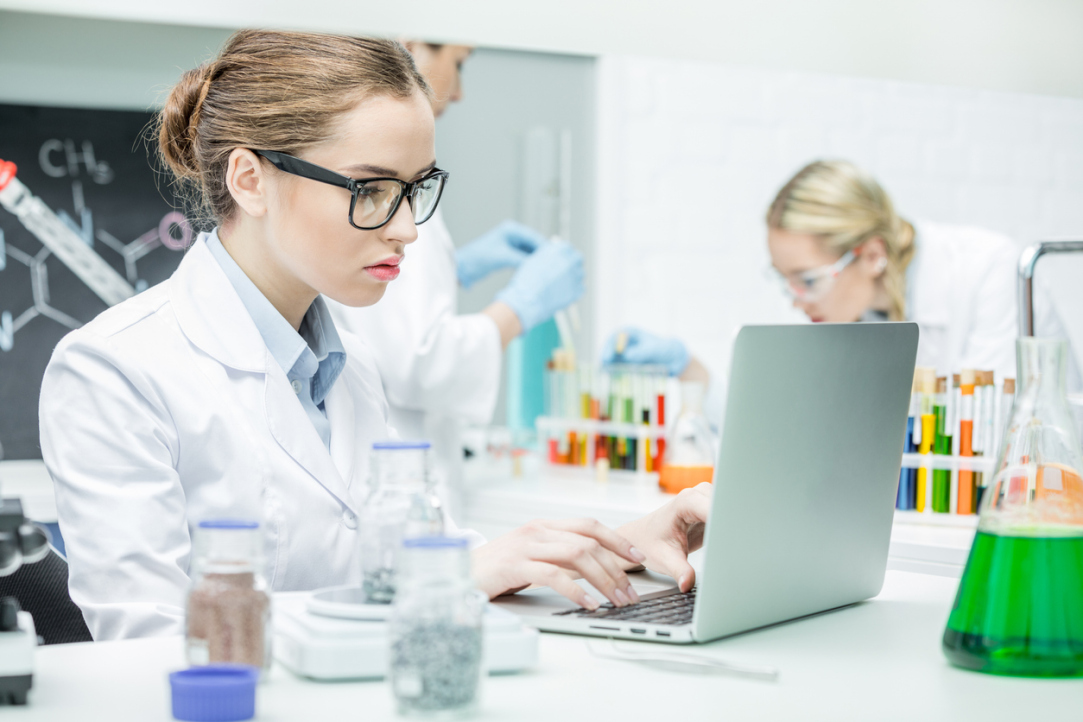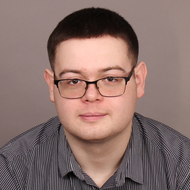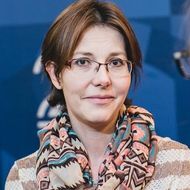‘Digital Chemistry Is the Cutting Edge of Science’

In 2024, a new track ‘Digital Chemistry and Artificial Intelligence Technologies’ will open within the Bachelor’s programme in Chemistry. This track will offer courses in digital engineering, multi-scale modelling, chemometrics, and chemoinformatics, as well as big data and artificial intelligence technologies. Specialists from HSE University, Zelinsky Institute of Organic Chemistry, Moscow Institute of Physics and Technology, and Peter the Great St Petersburg Polytechnic University will be among the lecturers.
Selection for the track will take place among first year students of the ‘Chemistry’ educational programme who have shown the best results in mastering the digital chemistry course materials ‘Information Technologies in Chemistry.’
The bachelor’s programme ‘Chemistry’ was launched at HSE University in 2019 with the support of the Russian Academy of Sciences with the aim of training highly qualified personnel for world-class research centres. The programme combines fundamental training in chemical, physical, and mathematical disciplines with the deep immersion in research project work using the laboratories of partner institutes of the Russian Academy of Sciences. One significant outcome of this approach to learning was the impressive scientific results of the programme’s first graduates, who received their degrees in 2023: 21 graduates published 46 co-authored articles in international academic journals.
Practical training within the scope of the new track will be completed through written coursework in theoretical chemistry and by carrying out research projects on track subjects. The faculty has the computing power and material resources necessary for this work.
'Chemistry is the science of substance transformations. Artificial intelligence is the science of transforming data into the answer required, and ideally into scientific knowledge. Digital chemistry combines classical theoretical chemistry with the latest methodology in artificial intelligence in order to accelerate the creation of new materials and reactions, and to deepen our understanding of chemical processes.
To do this, it uses both the precise laws of quantum physics and physical chemistry, as well as huge amounts of available experimental data. The curriculum for the track “Digital Chemistry and Artificial Intelligence Technologies” is designed in such a way that students who complete it will have a detailed understanding of digital tools used to solve applied problems in the field of chemistry and materials science, and also have the opportunity to apply them to real problems during their studies.'
‘Digital chemistry today is in many ways still the cutting edge of science, marking the transition to a new paradigm for the creation of substances and materials, based on working with big data. At that, it is rapidly evolving, penetrating almost all areas of chemistry: organic and inorganic chemistry, catalysis, medicinal chemistry, analytical chemistry, and materials science. The number of problems that can be potentially solved using artificial intelligence technologies is increasing many times over. Opportunities emerge for predicting and optimising the properties of molecules, predicting the stability of new compounds, and modelling chemical reactions. It becomes possible to solve problems of targeted synthesis of substances and materials with specified properties. In the future, artificial intelligence technologies will be able to replace time-consuming quantum chemical computational methods with models of machine learning and big data processing in electron microscopy and mass spectrometry. For this reason, it is important for a modern chemistry student not only to understand the essence of chemical phenomena and processes, but to learn how to apply these methods. It does not matter whether we are talking about training future researchers in experimental chemistry, both fundamental and applied. Mastering digital competencies takes a bachelor’s degree graduate to a qualitatively new level, at which they will find more success on the labour market.'
See also:
Solvent Instead of Toxic Reagents: Chemists Develop Environmentally Friendly Method for Synthesising Aniline Derivatives
An international team of researchers, including chemists from HSE University and the A.N. Nesmeyanov Institute of Organoelement Compounds of the Russian Academy of Sciences (INEOS RAS), has developed a new method for synthesising aniline derivatives—compounds widely used in the production of medicines, dyes, and electronic materials. Instead of relying on toxic and expensive reagents, they proposed using tetrahydrofuran, which can be derived from renewable raw materials. The reaction was carried out in the presence of readily available cobalt salts and syngas. This approach reduces hazardous waste and simplifies the production process, making it more environmentally friendly. The study has been published in ChemSusChem.
Scientists Have Modelled Supercapacitor Operation at Molecular and Ionic Level
HSE scientists used supercomputer simulations to study the behaviour of ions and water molecules inside the nanopores of a supercapacitor. The results showed that even a very small amount of water alters the charge distribution inside the nanopores and influences the device’s energy storage capacity. This approach makes it possible to predict how supercapacitors behave under different electrolyte compositions and humidity conditions. The paper has been published in Electrochimica Acta. The study was supported by a grant from the Russian Science Foundation (RSF).
Cerium Glows Yellow: Chemists Discover How to Control Luminescence of Rare Earth Elements
Researchers at HSE University and the Institute of Petrochemical Synthesis of the Russian Academy of Sciences have discovered a way to control both the colour and brightness of the glow emitted by rare earth elements. Their luminescence is generally predictable—for example, cerium typically emits light in the ultraviolet range. However, the scientists have demonstrated that this can be altered. They created a chemical environment in which a cerium ion began to emit a yellow glow. The findings could contribute to the development of new light sources, displays, and lasers. The study has been published in Optical Materials.
Chemists Simplify Synthesis of Drugs Involving Amide Groups
Chemists from HSE University and the Nesmeyanov Institute of Organoelement Compounds of the Russian Academy of Sciences (INEOS RAS) have developed a new method for synthesising amides, essential compounds in drug production. Using a ruthenium catalyst and carbon monoxide under precisely controlled reaction conditions, they successfully obtained the target product without by-products or complex purification steps. The method has already been tested for synthesising a key component of Vorinostat, a drug used to treat T-cell lymphoma. This approach could lower the cost of the drug by orders of magnitude. The paper has been published in the Journal of Catalysis. The study was supported by the Russian Science Foundation.
Russian Scientists Develop New Compound for Treating Aggressive Tumours
A team of Russian researchers has synthesised a novel compound for boron neutron capture therapy (BNCT), a treatment for advanced cancer that uses the boron-10 isotope. The compound exhibits low toxicity, excellent water solubility, and eliminates the need for administering large volumes. Most importantly, the active substance reaches the tumour with minimal impact on healthy tissues. The study was published in the International Journal of Molecular Sciences shortly before World Cancer Day, observed annually on February 4.
Russian Scientists Improve Water Purification Membranes Using Metal Ions
Researchers have proposed using polymer membranes modified with copper, zinc, and chromium metal ions for water purification. These polymers were used for the first time in water purification via electrodialysis. Copper-based membranes demonstrated record selectivity for monovalent ions, opening new possibilities for sustainable water recycling. The study has been published in the Journal of Membrane Science.
'I Would Ask Mendeleev if It's True that He Invented Vodka'
Andrey Manin's research focuses on membranes, but he has not yet decided whether to dedicate his PhD thesis to those used in water desalination or those involved in new types of electricity generation. In this interview with the HSE Young Scientists project, he recalls how he once disliked organic chemistry, enjoys watching retro films at Illusion Cinema, and was fascinated by Red Square as a child.
HSE Faculty of Chemistry Professor Wins Vyzov Prize
On December 9, 2024, the winners of the Vyzov Prize for Future Technologies were announced. Professor Leonid Fershtat from the Joint Department of Organic Chemistry with the RAS Zelinsky Institute of Organic Chemistry was honoured in the ‘Future’ category for his advanced research on creating functional organic materials for multi-purpose use based on high-nitrogen molecular architectures.
Ruthenium Complexes Can Accelerate the Development of New Medicines
A group of scientists at INEOS RAS, HSE University, and MIPT have synthesised catalysts containing a ruthenium atom and an aromatic ring. The scientists have isolated the mirror forms of these catalysts and investigated their effectiveness in producing heterocycles, which are commonly found in the structures of drugs. The research findings have been published in Chemical Communications.
Russian Chemists Develop Luminous Pseudosandwich Composed of Rare Earth Metals
A team of Russian researchers has successfully synthesised a new class of complex compounds of rare earth elements. Unlike other lanthanide compounds, the resulting substances are highly soluble in most organic solvents. These novel compounds can find application in organic and organometallic synthesis, as well as in the production of new luminescent materials. The study has been published in Inorganic Chemistry.




